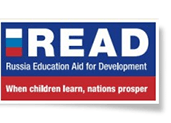In 2006, the Government of Mongolia and the education sector were recovering from the fall of communism and the subsequent departure of Soviet support. The government was working hard to protect public spending on education and to recover from a drop in enrollments that occurred in the mid-1990s.
Education remained a high priority within the government’s overall action plan, which supported strengthening basic education in Mongolia by raising the capacity of education administrators and teachers and by fostering competition.
The government knew that low levels of educational attainment were key determinants of poverty and that poverty could be a key factor that limited access to and quality of schooling. Therefore, investment in education was important because improvements in the sector could break the intergenerational transmission of poverty and were consistent with Mongolia’s commitment to achieving the Millennium Development Goals (MDGs) by 2015.
A World Bank-supported project helped set up classroom libraries in all the primary schools in rural Mongolia, which had almost no books before 2006. Between 2007 and 2013, the Rural Education and Development Project made learning materials available in rural Mongolia by establishing 3,560 classroom libraries in all 383 rural primary schools. Each school received over 160 books, benefiting a total of 130,000 students. 4,144 rural primary teachers and 383 school directors were trained. A local professional development network has been set up consisting of 95 core schools and 178 mentor teachers.
Nowadays through support from the READ 2 TRUST FUND PROGRAM Mongolia implements project “Support to Early Grade Reading and Mathematics Assessments”.
FOCAL AREAS OF THE PROJECT
Enhancing stakeholder capacity to use assessment data to improve teaching and learning
Training and professional development of teachers in use of classroom assessment practices
UP TO DATE ACHIEVEMENTS
Rolled out teacher training in use of classroom assessment practices around acquisition of early grade reading skills to 1,787 primary grade teachers in 108 primary schools
Produced a draft report on the rollout of teacher training
Completed, under intensive supervision by the Bank team, the baseline survey for an impact evaluation (IE) that will assess (i) changes in teaching practices attributable to the teacher training described above; and (ii) the impact of the training on improving early grade reading skills. The Bank team supported Ministry of Education, Culture, Sciences, and Sports (MECSS) in various supervision activities, including the identification of a qualified data collection firm, finalization of data collection instruments and IE methodology, sampling of schools, and training delivery to enumerators. The baseline included a nationally-representative sample of 216 schools (half of which were randomly selected to receive teacher training), with 15 children selected for testing from each of grade 1 and 2 classes in each school. The baseline survey assessed early grade reading skills in the sample; individualand household-level socioeconomic data were also collected for each student. Following completion of quality assurance checks, analysis of baseline data is now underway.
UPCOMING ACHIEVEMENTS
Obtain approval of the early grade reading and math assessment (EGRA and EGMA) policy briefs by MECSS, and translate briefs into Mongolian
Publish the report on the subnational dissemination EGRA and EGMA workshop (targeted to education authorities and parents in Mongolia’s remote Western provinces) on the MECSS website
Hold EGRA and EGMA results launch event (tentatively scheduled for March/April 2019)
Finalize recommendations of the brainstorming workshop on strategies to improve pre-service teacher training on formative assessments for reading and math skills in the primary grades, and publish the recommendations on the MECSS website
Complete the first monitoring mission and implementation report to assess use of formative assessments in classrooms, highlighting implementation issues faced, solutions explored, and lessons learned
Produce baseline impact evaluation report on the effectiveness of classroom assessment strengthening activities in improving learning outcomes
Design classroom observation and teacher questionnaires specific to the reading intervention, including a module on teachers’ beliefs about teaching practices around reading





